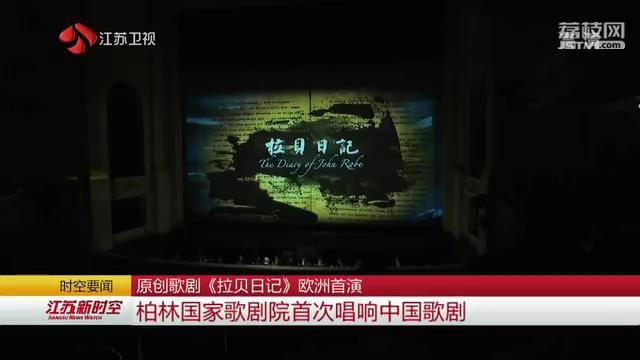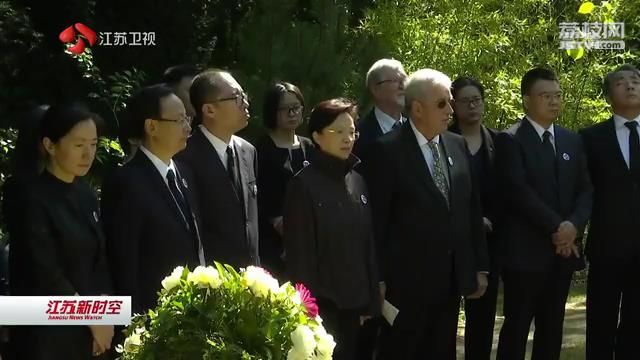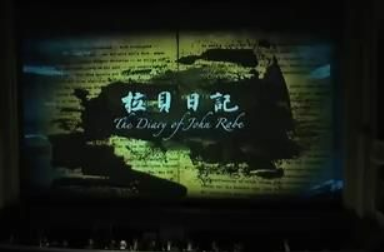It was the first time for a Chinese opera to be sung at the Berlin State Opera House. An original opera The Diaries of John Rabe brought the story of John Rabe back to his hometown, thus launching this round of European tour.

The opera is guided by the Publicity Department of Jiangsu Provincial Party Committee, produced by Jiangsu Cultural Investment Group and Jiangsu Performing Arts Group, and performed by Jiangsu Grand Theatre and Jiangsu Performing Arts Troupe.
Among the audiences were Wu Ken, the Chinese Ambassador to Germany, Wang Yanwen, standing member of the Jiangsu Provincial Party Committee and director of the Publicity Department, diplomats of the embassies of several countries in Berlin, Mr. Rabe's grandson Thomas Rabe and 1,500 others.
The original opera is adapted from The Good Man of Nanking: The Diaries of John Rabe, a collection of the personal journals of John Rabe, a German businessman who lived in Nanjing at the time of the Nanking Massacre in 1937–1938.

From the two dimensions of the national disaster and the stories of the human nature, the drama makes an artistic reappearance and reflection on the Holocaust in human civilization.
On Thursday morning, the representatives of the Jiangsu Provincial Cultural Delegation and the crew of the opera visited the graveyard of Mr. John Rabe. Mr. Thomas Rabe, the grandson of Mr. John Rabe, and research fellows on the life of Rabe were present.
On Thursday evening, the opera was performed the second time at the Berlin State Opera House.
John Rabe was a German businessman and Nazi Party member who is best known for his efforts to stop the atrocities of the Japanese army during the Nanking Occupation and his work to protect and help the Chinese civilians during the event. The Nanking Safety Zone, which he helped to establish, sheltered approximately 200,000 Chinese people from slaughter during the massacre.

The Good Man of Nanking: The Diaries of John Rabe contains the diaries that Rabe kept during the Nanking Massacre, writing from his personal experience and observation of the events that took place. Rabe's diaries were made known and quoted by author Iris Chang during the research for her book, The Rape of Nanking. They were subsequently translated from German to English by John E. Woods and published in the United States in 1998.






